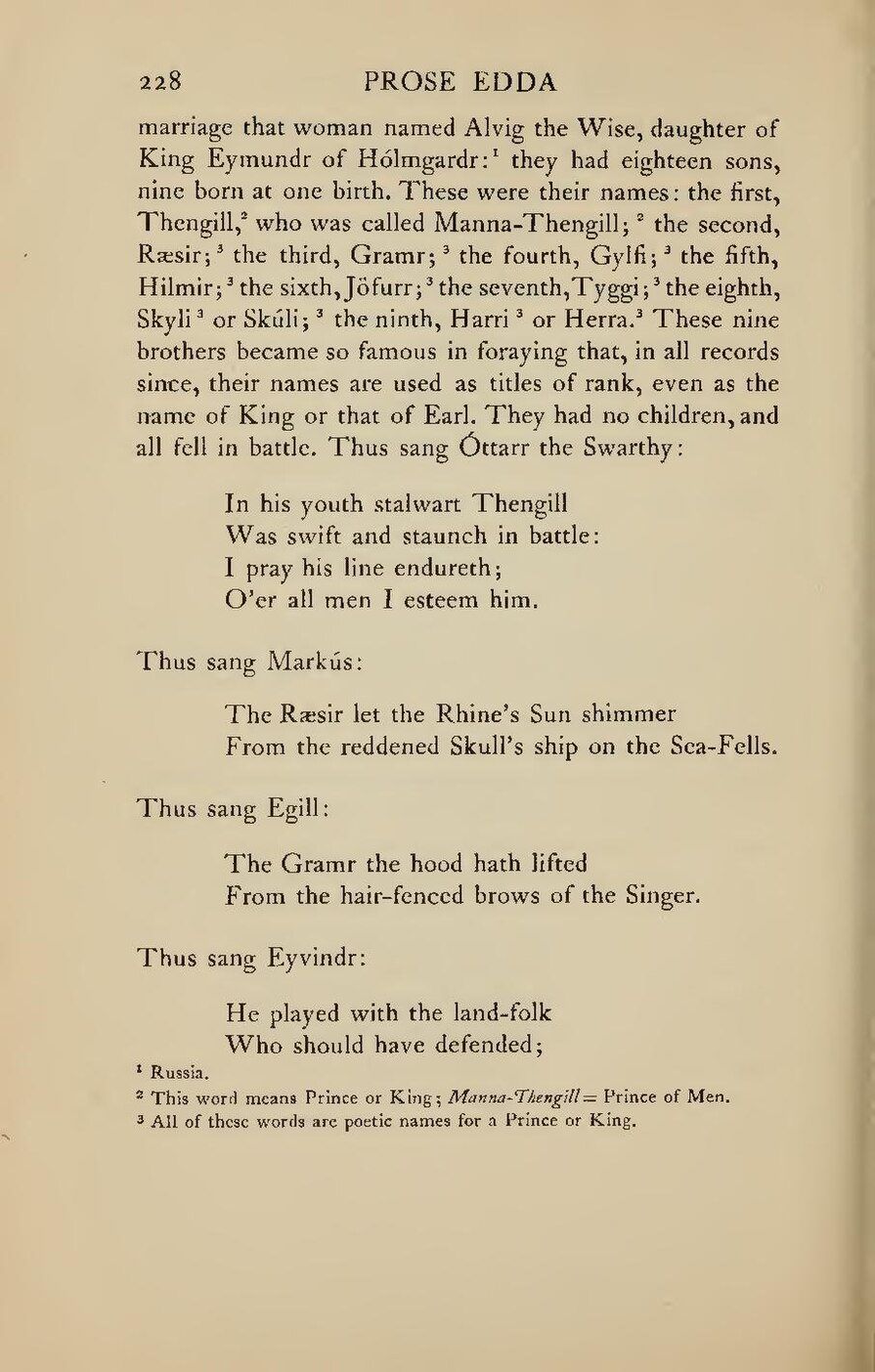228
PROSE EDDA
marriage that woman named Alvig the Wise, daughter of King Eymundr of Hólmgardr:[1] they had eighteen sons, nine born at one birth. These were their names: the first, Thengill,[2] who was called Manna-Thengill;[2] the second, Ræsir;[3] the third, Gramr;[3] the fourth, Gylfi;[3] the fifth, Hilmir;[3] the sixth, Jöfurr;[3] the seventh, Tyggi;[3] the eighth, Skyli[3] or Skúli;[3] the ninth, Harri[3] or Herra.[3] These nine brothers became so famous in foraying that, in all records since, their names are used as titles of rank, even as the name of King or that of Earl. They had no children, and all fell in battle. Thus sang Ottarr the Swarthy:
- In his youth stalwart Thengill
- Was swift and staunch in battle:
- I pray his line endureth;
- O'er all men I esteem him.
Thus sang Markus:
- The Ræsir let the Rhine's Sun shimmer
- From the reddened Skull's ship on the Sea-Fells.
Thus sang Egill:
- The Gramr the hood hath lifted
- From the hair-fenced brows of the Singer.
Thus sang Eyvindr:
- He played with the land-folk
- Who should have defended;
- Gylfi the gladsome
- Stood 'neath the gold helmet.
